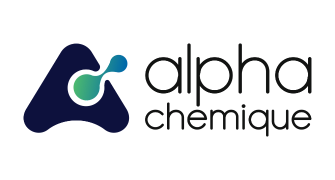Zirconium Silicate Introduction:
Welcome to Alpha Chemical Corp‘s informative blog post on zirconium silicate. In this article, we will explore the properties, applications, and uses of this versatile compound. Join us as we delve into the world of zirconium silicate and its significance in various industries.
Properties:
- Zirconium silicate is a white, odorless powder that is insoluble in water. It is composed of zirconium, silicon, and oxygen, and it possesses several key properties:
- Hardness and Abrasion Resistance: Zirconium silicate is known for its hardness and excellent abrasion resistance. This property makes it suitable for applications where wear resistance is required.
- Chemical Stability: Zirconium silicate exhibits high chemical stability and is resistant to acids, alkalis, and most organic solvents. This stability allows it to maintain its properties even in harsh environments.
- Low Thermal Expansion: Zirconium silicate has a low coefficient of thermal expansion, which means it does not expand significantly when exposed to high temperatures. This property makes it valuable in applications that involve thermal cycling or extreme temperature variations.
- Refractory Properties: Zirconium silicate has a high melting point, making it useful in refractory applications such as kiln furniture, crucibles, and refractory coatings.
Applications and Uses:
- Ceramics and Refractories: Zirconium silicate is widely used in the ceramics industry. It is a key ingredient in the production of ceramic glazes, opacifiers, and pigments. Its high refractoriness and low thermal expansion make it suitable for applications that require heat resistance and dimensional stability.
- Foundry and Investment Casting: Zirconium silicate is used as a binder in investment casting molds. It helps enhance mold strength, reduce cracking, and improve the surface finish of castings.
- Decorative Glass and Ceramic Tiles: Zirconium silicate is added to glass and ceramic formulations to achieve various decorative effects. It can enhance the opacity, color, and gloss of glass and ceramic tiles, making them more visually appealing.
- Dental Materials: Zirconium silicate is used in dental materials, particularly in dental ceramics and crowns. Its biocompatibility, strength, and aesthetic properties make it an ideal material for dental restorations.
- Abrasives and Grinding Media: Due to its hardness and abrasion resistance, zirconium silicate is used as an abrasive material in polishing and grinding applications. It is commonly found in grinding media, such as beads and balls, used in sand mills and ball mills.
- Refractory Coatings: Zirconium silicate coatings are applied to refractory materials to improve their resistance to heat, corrosion, and erosion. These coatings help prolong the lifespan of refractory linings in high-temperature industrial processes.
Safety Considerations:
- Dust Control: When handling zirconium silicate powder, it is important to take proper dust control measures, such as wearing appropriate personal protective equipment and using local exhaust ventilation, to minimize inhalation exposure.
- Regulatory Compliance: Manufacturers and users of zirconium silicate should adhere to relevant regulations and guidelines regarding safe handling, storage, and disposal of the compound.
Conclusion:
Zirconium silicate is a valuable compound known for its hardness, abrasion resistance, and chemical stability. Its applications span various industries, including ceramics, refractories, dental materials, and abrasives. The unique properties of zirconium silicate make it an essential ingredient in a wide range of products and processes. It is important to handle and use zirconium silicate in a safe and compliant manner, following recommended safety practices and regulations, to ensure the well-being of workers and the effective utilization of this versatile compound.

